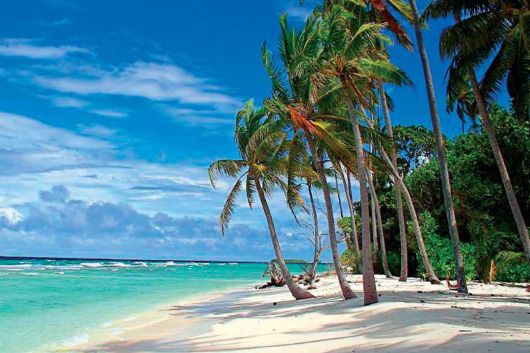Barbados Touts its Low-Tax, Offshore Advantage

Barbados Touts its Low-Tax, Offshore Advantage
By Anita Elash
Offshore tax havens, still reeling in the wake of the global economic crisis, are looking to Canada to help revitalize the industry. Government officials of Barbados, one popular low-tax jurisdiction, are stepping up efforts to attract Canadian investors as the Caribbean country grapples with a slowdown.
Like most low-tax countries that rely heavily on international investment, Barbados has suffered amid sluggish growth in western economies. Direct foreign capital investment – a major part of its economy – dropped by nearly 5 percent in 2009, largely because British and U.S.-based companies cut back on expansion overseas, and business has remained slow since.
Other countries in the region have also been hurt by a decline in foreign investment and are scrambling to drum up new business, especially from Canadian companies, which have benefited from Canada’s relatively strong economy.
Investment by Canadian companies looking to avoid paying Canadian tax on income derived from foreign earnings has grown from $500-million in 1987 to $51.7-billion last year. Nearly 9 per cent of Canadian direct investment abroad is done in Barbados. Canadian subsidiaries, which include a large number of mining, oil-and-gas and financial services companies, account for one-third of the 3,750 corporate structures set up there.
Barbados is also facing more competition for investment after other tax-haven countries in the region, such as the Cayman Islands and Bahamas, signed agreements with Canada last year to ensure greater transparency and give them more legitimacy.
But Barbados is fighting back by promoting its expanding network of bilateral double taxation treaties and appealing to Canadian companies to invest there in order to take advantage of them.
The practice of investing in low-tax jurisdictions remains controversial. About a fifth of Canada’s foreign direct investment moves through low-tax jurisdictions, of which Barbados is the biggest recipient. The New Democratic Party estimates Canada loses about $4-billion a year in corporate tax revenue on such investments.
But Barbados says offshore investments are an important contributor to its economy, and Canadian tax experts argue that allowing preferential offshore tax structures helps maintain a healthy Canadian business sector.
Until recently, Barbados enjoyed special status in the Caribbean as the only offshore investment centre that complies with international standards for transparency and tax co-operation. That changed last year when Canada signed Tax Information Exchange Agreements with eight Caribbean countries, including Cayman Islands, Bahamas and Bermuda, all of which had been on an international “grey list” of uncooperative tax havens.
Low or zero tax offshore investments are not for everyone, said Paul Schnier, a tax expert at the law firm Blaney McMurtry Barristers and Solicitors LLP. He said owners who rely on company profits to pay their living expenses would not benefit, since profits from overseas investments in countries like Barbados are only tax-free as long as they stay in the company.
The cost of hiring or transferring staff and setting up and maintaining an office can also be high, and companies looking to make such an investment should insure that costs are not greater than any tax savings.














